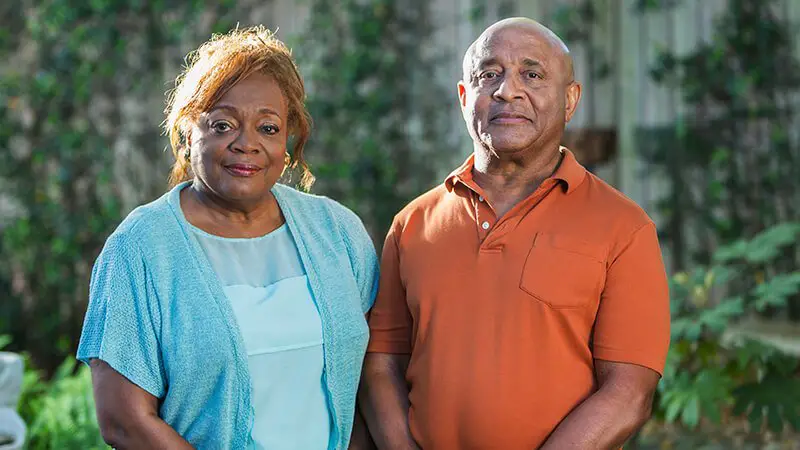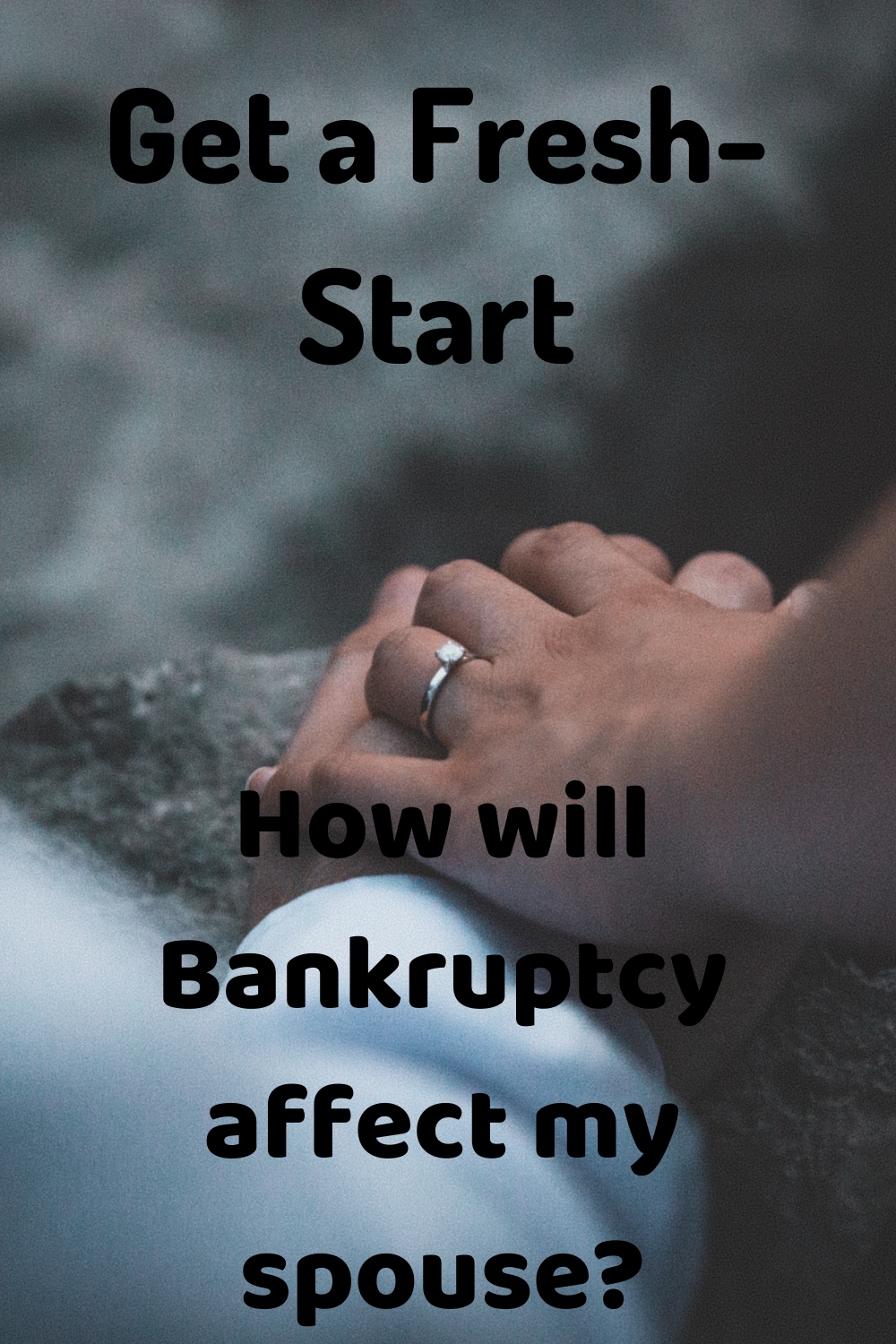What Is The Power Of The Family Law Courts To Deal With Bankruptcy Matters
s79 and s90SM of the Family Law Act, in relation to bankruptcy matters, provides as follows:
In property settlement proceedings the court can make such orders as it considers appropriate upon the breakdown of a marriage of de facto relationship.
altering the interests of the parties to the marriage in their property
in the case of bankrupt property where the bankrupt is a party to the proceedings, altering the interests of the bankruptcy trustee in the vested bankruptcy property.
an order for a settlement of property in substitution for any interest in the property
an order requiring either/both of the parties to the marriage/relationship/the bankruptcy trustee to make for the benefit of either/both the parties to the marriage/relationship/child of the relationship, such settlement/transfer of property as the court determines.
s79/s79SM provides that in family law proceedings, orders can be made for the benefit of the parties to the marriage or a child of the marriage, not for the benefit of the trustee.
The section provides for the involvement of the bankruptcy trustee in litigation to the extent that the litigation involves vested bankruptcy property and where an application is made for property settlement involving a bankrupt party, the bankruptcy trustee should be joined to the proceedings: s79 / s90SM Family Law Act.
Alteration Of Property Rights Under S79 Ofthe Family Lawact 1975
Under s79 of the Family Law Act 1975 , courts having jurisdiction under the Act are empowered to makedeclarations altering the existing property interests of the partiesto amarriage. Section 79 does notaffect proprietary rights prior to the Court making an order, so until the orderis made, the ordinary rulesgoverning legal and equitable interests continue toapply.
There are three stages in the process of reallocating property under s79 ofthe Family Law Act. First, the full extent of both partiesproperty must be ascertained. Itis irrelevant how, when or by whom the property wasacquired. This includes propertythat was acquired before the marriage, after separation or even through aninheritance. Second, theproperty must be valued. Third, the judge must exercise his statutory discretionto allocate property interests betweenthe parties. The discretion given unders79 is wide. In De Winter v DeWinter,GibbsJ observed: Few curial orders can have a greater effect on ordinarycitizens of modest means. It needs hardly be saidthat such a discretion is tobe exercised with scrupulouscare.
What Happens If I Receive An Inheritance
If you receive an inheritance, your trustee is able to claim this to help repay your debts. This applies if the right to an inheritance arises before or during your bankruptcy.
You, or the executor of the will must notify your trustee of the inheritance within 14 days of becoming aware of the entitlement. If you receive the inheritance before your bankruptcy begins, you will need to put this information in your application. When you enter bankruptcy, your trustee can request supporting documents.
Read Also: Online Bankruptcy Preparation Services
Gifts From Your Partner
Your partner isn’t allowed to give you items of value or sell them to you at less than their value in order to avoid them being taken away as part of the bankruptcy estate.
The bankruptcy trustee will look at any gifts your bankrupt partner has given you or things you have bought from them.
You might have to give the things back or pay the trustee for them.
Your partner could also be given a bankruptcy restrictions order. This would extend the period of time during which they have to follow certain rules restricting them for anything up to 15 years. It could also lead to them being fined and/or sent to prison.
The trustee usually checks what your partner gave or sold to you over the last 5 years.
They can check things that happened over 5 years ago if they think your partner has ‘defrauded creditors. This means they think your partner has deliberately sold things or given them away so they couldnt be used to pay their debts.
If the official receiver or trustee says your partner has defrauded creditors, your partner should get legal advice.
You Will Have A Trustee That Will Manage Your Bankruptcy

A trustee is the person or entity that manages your bankruptcy. They work with you, and your creditors, to achieve a fair and reasonable outcome for all. During bankruptcy, you have an obligation to provide information to your trustee, including changes to your circumstances. This may involve supplying books, bank statements and other documents that the trustee asks you to provide.
When you apply for bankruptcy, you can choose a registered trustee. If you do not choose a trustee, your bankruptcy may initially be administered by either the Official Trustee or a registered trustee.
You May Like: Did Donald Trump Declare Bankruptcy
How Are Compensation Payments Treated
Whether you can keep compensation you receive depends on the type of payment. When you receive a compensation payment, you must inform your trustee. Your trustee can request supporting documents to determine whether they will claim it. If they claim it, they can use it to help repay your debts.
Note: This information is a guide only, as the legal treatment of these payments can be complex. You may wish to seek your own legal advice.Your trustee is not able to claim:
- compensation for personal injury or wrong done to you or your family. For example, payments for an injury due to a car accident
- life insurance or endowment payments that you/your partner receive after you became bankrupt
- assets you buy wholly or substantially with these payments.
We also refer to these types of payments as protected money.
Your trustee is able to claim:
- life insurance or endowment payments that you/your partner receive before you became bankrupt
- compensation payments you receive that do not relate to personal injury or wrong done to you. For example, payments for illness that is not a result of a personal injury.
If you are unsure what the compensation was for, we encourage you to get your own legal advice.
What Happens When You Are Declared Bankrupt
If you are declared bankrupt, your name will immediately and permanently be placed on the National Personal Insolvency Index. Any one individual or organisation can conduct a search of the Index if they pay a fee of just $15.
If you are declared bankrupt, you must also provide details of all your debts, income, assets and any other information requested by a registered bankruptcy trustee. If you dont appoint a bankruptcy trustee or your petitioning creditor does not nominate one, AFSA will become the trustee.
Your bankruptcy trustee may immediately take possession of certain assets to the end of selling those assets seized to raise money to repay creditors. It is the trustees job to try and achieve a fair outcome for all parties involved, including your creditors.
You must keep your trustee informed of any future changes to your situation while you are an undischarged bankrupt.
Read Also: What Is A Bankruptcy Petition Preparer
Do I Need To Become Bankrupt
Bankruptcy may seem an easy and attractive option if you want to deal quickly with your creditors. However, it has consequences which you should know about before you consider taking this step. Find out from Fox Symes the other options which may be used to address your financial situation. You may not have to go bankrupt.
Bankruptcy Can Impact The Debts Or Assets You Share With Someone Such As A Spouse
Impact of COVID-19
In line with the current nationwide moratorium on evictions, trustees of bankrupt estates have been encouraged to consider avoiding evicting people who are COVID-19 affected from properties to enable sale. You can find more information about general guidelines for trustees during COVID-19 by clicking here.
If a trustee is trying to evict you from your home, you should speak to them about alternative options while COVID-19 continues to affect our community.
If, after reading this resource, you have general questions about the consequences of bankruptcy, can apply for assistance from our Federal Self Representation Service by clicking here.
Its a common myth that if one partner goes bankrupt, the other one must as well. Thats not true. Bankruptcy affects your spouse if:
- they use an asset you own
- you sold or gave them an asset prior to going bankrupt
- you share a debt with them
- you co-own an asset .
This fact sheet covers:
What is Bankruptcy?
Bankruptcy is a legal process through which you are declared unable to pay your debts when they fall due. You may file for bankruptcy , or alternatively, . If you are declared bankrupt by either of the above means, you will be removed from managing your own finances, and a trustee will be appointed to manage your money and assets.
To understand the ways in which bankruptcy may affect you, please read our fact sheet on the consequences of bankruptcy, as well as bankruptcy and the family home.
- a mortgage
- a car loan .
Recommended Reading: How Many Bankruptcies Has Donald Trump Filed
How Bankruptcy Can Affect Your Self
If you have a self-managed super fund , it is a legal requirement for you to be a trustee of your fund. However, you cannot legally be an SMSF trustee if you are a registered bankrupt. You must notify the ATO within 28 days of being declared bankrupt and remove yourself as a trustee of the fund. This will mean that either:
- your SMSF will need to be wound up if you are the only member, or
- you will need to roll over all of your super to another public super fund so that you are no longer a member of your SMSF .
What Happens To My Debts
If you enter bankruptcy, you will find that most debts are covered. This means that you no longer have to repay them. In some cases, your trustee may sell your assets or use compulsory payments to help pay your debts.
Read on to understand which debts bankruptcy covers and if you still need to pay certain types of debts.
Also Check: Trump Personal Bankruptcies
What Happens To Debt In A Divorce
In the province of Ontario when you get divorced, all matrimonial property is split between the husband and wife. However, with joint debts if you get divorced the debt is not split and you both remain equally responsible to ensure all debts are fully repaid.
In fact, even if you have a legal separation agreement which states that each person is to assume half of any joint debts this will not release you from your spouses portion.
In simple terms, if you are joint with your ex-spouse on a debt, its not a 50/50 split its a 100%/100% split, because you are both fully liable for the debt. In the case of divorce and bankruptcy, if one spouse declares bankruptcy, the other spouse is fully liable for the joint debt.
How Bankruptcy Can Affect Your Tax Situation

After you become bankrupt, you still have to file a tax return if you earn taxable income. You must keep your trustee informed of any notices of assessment that you receive from the ATO . As part of their arrangements with your creditor/s, they may claim some or all of any refund that you may receive.
The ATO may also keep any refund that you may be due in order to repay any outstanding tax or HECS debts that you may have.
Recommended Reading: Can You File Bankruptcy On A Title Loan
Bankruptcy Trustees Property And Bankrupts Right To Litigate
s58 of the Bankruptcy Act 1968 provides that the bankrupts property held at the time he/she is bankrupt and during the period of bankruptcy, vests with the trustee.
The ability to litigate when you are bankrupt is quite limited. You can still be a party to the proceedings, but arguably, the bankrupt spouse cannot have an order for the alteration of property interests in their favour.
It is not uncommon for property settlement proceedings to involve the parties and the bankruptcy trustee, and the non-bankrupt will in those circumstances have to negotiate a settlement with the non-bankrupt spouse.
How Does Bankruptcy Work
There are several ways in which bankruptcy can be declared. You can enter into voluntary bankruptcy through a debtors petition, or your creditors may apply to bankrupt you through a court, which is called a creditors petition.
Once you have been declared bankrupt, you can nominate a trustee or the Australian Financial Security Authority will appoint one for you to manage your finances.
You will be classified as bankrupt for three years, and your bankruptcy will be publicly registered on the NPII, National Personal Insolvency List.
You May Like: Do Married Couples Have To File Bankruptcy Together
The Small Business Case And Small Business Debtors
The Bankruptcy Code allows small business debtors to file for relief under two different special categories of chapter 11 intended to streamline processes and reduce costs. The first, referred to as a small business case ), was created in 2005 by the Bankruptcy Abuse Prevention and Consumer Protection Act , and the second, referred to as subchapter V, was created in 2019 by the Small Business Reorganization Act . A debtor may elect either of these two options based on certain eligibility criteria. Both small business and subchapter V cases are treated differently than a traditional chapter 11 case primarily due to accelerated deadlines and the speed with which the plan is confirmed. The two types of cases have different debt limits, defined as the total amount of noncontingent liquidated secured and unsecured debt at the time the debtor files their bankruptcy case.
In addition to accelerated deadlines and faster plan confirmation, small business and subchapter V cases have other key differences from ordinary chapter 11 cases: a creditors committee is not automatically appointed and instead will only be appointed upon a showing of cause, 11 U.S.C. § 1102, and the debtor or debtor in possession has additional duties, 11 U.S.C. § 1116.
Should I Keep My Policy While Im Filing For Bankruptcy
If you can afford it and you still have a need for your policy, you might consider keeping it for a few reasons.
You May Like: Is Taco Bell Filing For Bankruptcy
Possible Effects On Your Spouse
So what about the case where you file individually? How will this impact your partner financially?
Again, the non-filing spouses credit rating wont be affected. Any jointly owned assets may be affected by you filing for Bankruptcy. It is important when considering bankruptcy to ensure that you have all the information possible to guarantee yourself that you are making the best decision possible. And its not axiomatically true that just because you both own a home together, your credit reports will reflect the other individual as a joint file.
Whilst you filing for bankruptcy may not directly impact your partner in terms of their financial responsibilities, there are occasions when your partner may be affected. However, there are what well call satellite effects. While not directly affecting the non-filing spouse, they could definitely place some restrictions or be a hindrance overall. Lets take a look.
How Will Claiming Bankruptcy Affect My Spouse
Your partner will only be affected by your bankruptcy if he is a guarantor of your debts, or if he has joint debts with you or or jointly owns property with you which will vest in the trustee. Although your bankruptcy wonât directly impact your partner, it will have what is called âsatelliteâ effects by placing restrictions or by simply being a hindrance. Your joint accounts, including any joint investment accounts, joint insurance policies or joint loans such as home loans or a rental lease in both your names could be impacted.
You May Like: Has Mark Cuban Ever Filed For Bankruptcy
F Impact Upon Other Associatedentities
In relation to other associated entities, it is not clear how thecontributions method of assessing ownership will work. How is ajudge to assessthe relative contribution between a bankrupt and a trust? The factors that maybe relevant under s79 of the Family Law Actin the context of a disputebetween natural persons will not easily translate to proceedings involvingtrusts or companies. If theproposal is to have any effect, the legislature mayhave to establish a separate regime for transactions between natural personsandother legal entities.
Is My Superannuation Affected

It depends on when and how you receive super. You must inform your trustee if you receive any super before and/or after your bankruptcy begins.
Super payments you receive before bankruptcy:
- are claimable by your trustee
- your trustee can claim assets you purchase with those funds, e.g. a house.
Super payments you receive during or after bankruptcy:
- are not claimable by your trustee if it is a lump sum payment
- your trustee cannot claim assets you purchase with those funds, e.g. car.
An exception is where your super isnt in a regulated fund, approved deposit fund or an exempt public sector scheme. Your trustee can claim super not held in these types of funds. Refer to your super fund provider if you are unsure which type of fund your super is in.Super you receive as income:During bankruptcy, super you receive as an income stream forms part of your assessable income. If your income is over a set amount, you may need to make compulsory payments.Self-managed super fundsSomeone who is bankrupt cant be a trustee of a self managed super fund. If you have a self managed fund you must advise your trustee. You must cease acting in this position and notify the ATO within 28 days. See the ATO website for more information about removing yourself as a trustee.
You May Like: Can I Buy A Car After Bankruptcy Discharge